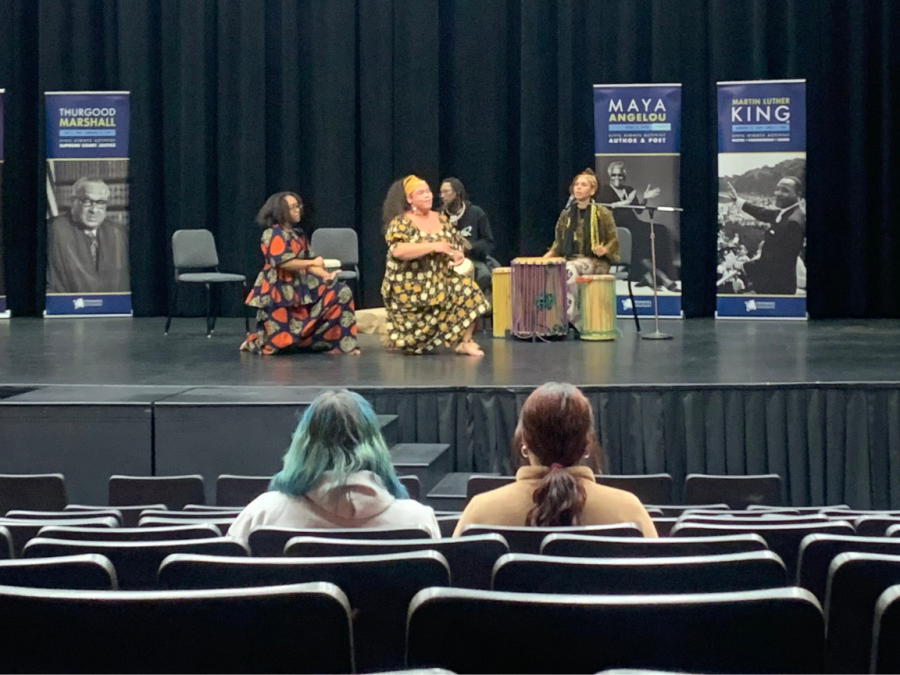Black Resistance Day event features dancing and keynote speaker
The Umoja Diop Scholars hosted Black Resistance Day on Feb. 15 in the Recital Hall. The event included Artistic Director and Founder Olivia Jasmin James of Fenix Drum and Dance Company and three members of the company performing traditional African drum and dances.
Umoja Diop Scholars brought Black Resistance day to campus on Feb. 15.
The event was one of many planned for Black History Month and included a drumming and dance performance and keynote speaker.
“I look at it like it’s Black history year, it shouldn’t just be a month,” said Adjunct Counselor and Co-coordinator with Umoja Jonathan Harris. “Everybody should look at their own people and be like ‘hey, celebrate your culture all year long.'”
The event began with a drumming and dance performance from South Sacramento’s Fenix Drum and Dance Company at the Recital Hall.
Fenix Artistic Director and Founder Olivia Yasmin James and three other company members performed various traditional African drum and dance combos, calling on crowd participation for some.
“We grew up and we have this music and these experiences with our friends,” James said.
After the performance, Umoja Diop Scholars Counselor/Coordinator Dr. Teresa Aldredge hosted a lecture on Black Resistance with keynote speaker and award-winning filmmaker Dr. Daniel E. Walker. It was held via Zoom with an in-person viewing on campus in the BS-129.
Walker spoke from his home in Atlanta, Georgia and began the talk on a high note.
“At this stage in my life, I cannot do things that are against anything,” Walker said. “I can’t do the anti anymore. I can only do the affirmative.”
Later in the lecture, Walker began to focus on serious topics as he spoke on current events such as Florida’s recent ban on Advanced Placement African American Studies and the death of Tyre Nichols.
“The young man that got beaten mercilessly by some brothers in Memphis,” Walker said. “Not only was it the police, but they look like us. Which makes it worse.”
As he closed his speech, Mwuala Denise Marshall Mills, a retired CRC counseling professor, praised Walker.
“Thank you, thank you, thank you so very much,” Mills said.”I have no doubt that our ancestors are so very, very proud of you.”
During the Q&A that followed, management information systems major Chisom Ezeh, 18, asked Walker how she might best practice Black resistance in the corporate world.
Walker said to beware of microaggressions.
“Especially when a co-worker is acting like you’re the only one that ever did something,” Walker said. “You need to be able to state to people ‘no. I have all kinds of friends who are just as smart as me, who are working just as hard.'”
College President Dr. Edward Bush said that having a hiatus over a couple of years due to the pandemic had created a gap and that the day’s events represented why it’s good to have students back on ground.
“So much about going to college is being able to engage,” Bush said. “Any time we get the opportunity to represent the diverse cultures that exist at CRC, I think it’s a really good thing.”

